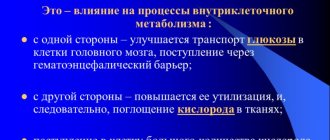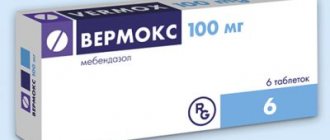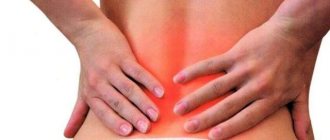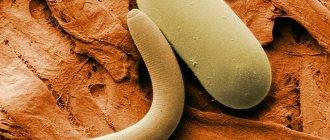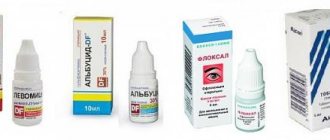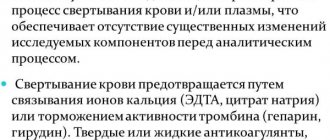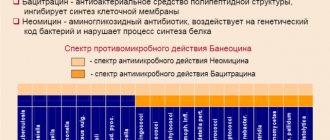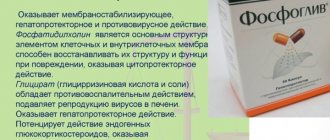Destruction of the tissues that form the crown and root parts of the tooth invariably leads to discomfort, and in more advanced cases – to acute, throbbing or nagging pain. In dentistry, toothache has a special definition – dentalgia or odontalgia. Often the cause of pain can be gum disease, jaw problems, or injuries. Unfortunately, it is not always possible to get an appointment with a dentist at the first signs of discomfort, so you can use tablets for toothache to relieve symptoms and improve your well-being.
It is important to understand that not a single tablet can eliminate the cause of toothache. The only way to cope with dentalgia for a long time is to consult a dentist for therapeutic or surgical treatment.
The choice of a particular treatment method depends on the complexity of the problem and the stage of its development.
By clicking the “request a call” button you agree to the personal data processing policy.
Modern pharmacology offers a wide range of effective drugs that can reduce discomfort caused by progressive dental diseases or injuries. Today, you can buy a variety of medications for toothache in pharmacies. Conventionally, they can be divided into 3 groups:
- NSAIDs (non-steroidal anti-inflammatory drugs)
. As a rule, the source of toothache is an inflammatory process. NSAIDs don't just relieve pain - they relieve inflammation, thereby reducing pain. - Analgesics.
They do not affect the course of the inflammatory process - they eliminate the source of pain by affecting the nerve endings and pain centers in the brain. - Local painkillers
. These are drugs such as lidocaine and novocaine. As a rule, these products are produced in the form of injections, but you can find small aerosol cans with lidocaine on sale - one press and the pain goes away for 30-40 minutes. The main disadvantage of local anesthetics is their strong effect on nearby tissues, which can result in a “cotton tongue” effect, temporary loss of skin sensitivity at the site of exposure, and lack of taste sensations.
As a rule, tablets are the most popular - they are easy to use, and if you choose the right drug, you can use them not only to relieve toothache, but also as an antipyretic, a medicine for migraines, joint pain, etc.
Other medications for toothache
In addition to tablets and capsules, the pharmaceutical industry offers a lot of other drug options that help in the fight against dentalgia:
- Gels.
They are most often used in children during teething. Moreover, such remedies also have an effect in adults during the eruption of wisdom teeth. Among the most popular drugs of this kind are ointments and gels “Cholisal”, “Solcoseryl”, “Dentol”, “Kamistad”, “Metrogil Denta”. - Dental drops.
These are safe, natural preparations made on the basis of natural ingredients, extracts, and essential oils. They have a local anti-inflammatory, calming and analgesic effect. Popular drops - “Dentaguttal”, “Dentinox”, “Dantinorm”, “Denta” - Injections.
These may be conventional drugs for intramuscular administration (Ketonal, Ketorol, Diclofenac), or they may be drugs for point application. Most often, injections are used by professionals for strong pain relief before tooth extraction or treatment (Ultracain, Septodont). - Antibiotics.
It is important to understand here that if a tooth hurts due to the development of caries or pulpitis, then antibiotics are useless (after all, they do not have any effect on the exposed nerve). But if there is a suspicion of the formation of an abscess under the root (obvious inflammation), then it makes sense to take a course of antibiotics (amoxicillin, clindomycin, metronidazole, chloramphenicol, biseptol) for maximum resorption of the accumulated pus. Of course, immediately after this you need to go to your doctor and eliminate the root cause of the pain (treat or remove the tooth). Antibiotics are available in the form of tablets, ointments, and injections. - Sprays and aerosols.
These medications have a local anesthetic effect; simply put, they freeze the tooth. The most popular is Ledocaine spray.
Folk remedies:
- Rinses
Most often, a saline or soda solution is used (1 teaspoon per glass of water), to which you can add a couple of drops of iodine. You can rinse a sore tooth when the first pain appears. - A decoction of sage, chamomile, and St. John's wort for rinsing is also recommended. It is quite simple to prepare: pour boiling water over 1 teaspoon of any of the above herbs, hold in a water bath for 15-20 minutes, strain and cool slightly. Rinsing is carried out as needed to relieve pain with a warm decoction.
- Cooling
. For local anesthesia, you can temporarily apply a piece of ice or something cold to the painful tooth (or rather, to the cheek on the painful side). As a rule, the effect occurs quickly, but does not last long. The main disadvantage of this method is that after applying ice, the pain may disappear for a while, and then return with renewed vigor. - Garlic applications
. Oddly enough, you need to apply garlic not to the tooth, but to the hand (in the place where the pulse is usually felt). The garlic is cut into small cubes or pressed through the garlic, a piece of bandage is placed on the wrist (if this is not done, there is a high risk of a chemical burn from contact of garlic juice with the skin), folded in half or three times, garlic is laid on the bandage, covered with two or three layers of bandage on top. and secure the application. If you have a toothache on the right side, then apply the garlic to your left hand and vice versa.
You can find even more traditional methods in this article.
When a person starts to have a toothache, he is ready to use any means to make it end as soon as possible. Some patients, in the fight against dentalgia, use homeopathic remedies, which, in theory, are designed to cope with the disease. In fact, this makes very little sense: toothache is not a disease, but a symptom of it that needs to be quickly relieved. Homeopathic medicines are intended for long-term treatment, so instead of wasting time and money on useless medicines, it is better to take a tablet of a good painkiller and see a dentist as soon as possible.
What to do if the pills don't help?
It often happens that even after taking strong painkillers, toothache does not subside. This happens for many reasons: advanced caries, pulpitis, severe destruction of the crown, abscess on the root (by the way, practice shows that in this case even local anesthetic injections such as Ultracaine are ineffective). In addition, do not forget about individuality - there are people who are simply not susceptible to the effects of drugs. Also, drugs that affect the nervous system and brain pain centers may not be effective in patients who are in a constant state of stress.
If no pharmaceuticals or folk remedies help, you should not look for a magic pill - you must urgently go to a dental clinic for qualified help.
Which ones are better to choose for aching pain?
You should not take medications on your own
When selecting a remedy, the doctor is guided by the characteristics of the patient’s body, the nature of the pain and other factors.
You should not take medications on your own, since several versions of painkillers that have the same active substance have different effects on vital systems.
In addition, the operating principle of anesthetics is different, which requires careful selection of the drug for each type of pain:
- The following will help eliminate mild pain: Aspirin, Paracetamol, Analgin.
- For aching pain, medications such as Spazmalgon, Papaverine, No-Shpa are recommended.
- The following drugs can relieve pain as quickly as possible: Efferalgan, Solpadeine, Solpadeine Active, Nurofen, Next, Nimesil.
How often can you take painkillers?
Whatever the cause of toothache, you should never abuse painkillers:
There is no universal recipe for taking painkillers for toothache. Each drug is accompanied by instructions that clearly describe the dosage and method of use depending on the nature of the pain, age, weight of the patient, etc.
If we summarize all the recommendations, we can say that taking more than 3-4 tablets a day is not recommended (while strong tablets, such as Nise or Ketanov, it is generally better to take no more than 2 times a day).
Weaker drugs can be taken in larger dosages (1-2 tablets at a time, 3-4 times a day). But, again, if the pain is severe and you have to swallow 8 Paracetamol tablets to cope with it, it is better to take 1-2 tablets of Aertal or Nurofen - the effect will be approximately the same.
When is it okay to use painkillers?
All situations in which it is permissible to combat painful symptoms with the help of NSAIDs can be divided into two large groups:
- recovery period after dental treatment;
- the time before visiting the dentist.
In the first case, you need to take the drug for as long as the doctor said. The dosage and frequency of its use cannot be exceeded. If the composition does not help, you need to consult a dentist about replacing it.
In the second case, a one-time use of an over-the-counter product is allowed. This can be done if it is not possible to get to a doctor today, and the destroyed unit aches very much. But constantly drinking analgesics or NSAIDs, postponing a visit to the dental center, is unacceptable.
Pregnancy pills
Pregnancy is the period when a woman should treat herself with the most care and carefully monitor her health - because the condition of her unborn baby directly depends on this. Therefore, even at the planning stage of pregnancy or at its earliest stages, it is necessary to solve all existing problems in the oral cavity. If for some reason this was not possible, you should prepare for the fact that coping with the resulting toothache will be very problematic:
- During pregnancy, and especially in the first and third trimester, it is prohibited to take any highly effective painkillers (it has been scientifically proven that active substances can penetrate the placenta, causing harm to the unformed body of the unborn baby).
- Hormonal changes that invariably accompany the process of bearing a child can lead to the most unexpected consequences - from unexpected destruction of enamel and gum disease to the manifestation of complete immunity to medications.
That is why, among the drugs approved for pregnant women, doctors name only Paracetamol, Nurofen (in the 1st and 2nd trimester), Analgin (in the 2nd trimester), Airtal (in the 1st and 2nd trimester). All of the above drugs can be used in moderation - 1 tablet per day for no more than 5 days in a row.
Severe toothache in pregnant women is best relieved with safe folk remedies (gargle, ice, garlic).
All of the above also applies to the lactation period. At this time, it is advisable to reduce the intake of any medications to zero, since after absorption into the blood they enter the body of the newborn.
Do not ignore preventive visits to the dentist.
It is enough to visit a specialist 1 – 2 times a year, which will allow you to promptly identify any dental problem at an early stage of development. This means that its elimination will be quick, easy and without complications.
By clicking the “request a call” button you agree to the personal data processing policy.
Rating of the top 10 drugs for dental treatment
Medicines that relieve pain are called analgesics. They are different - narcotic and non-narcotic; central action and peripheral action.
Non-steroidal anti-inflammatory drugs (NSAIDs) are considered one type of non-narcotic pain reliever. These medications interfere with the production of prostaglandins, the main mediators of inflammation. This way it is possible to relieve inflammation, heat and relieve pain. To relieve toothache, various analgesics are used, including NSAIDs. Let's look at the 10 most popular products.
Nimesulide (Nimesil, Nise)
Nimesulide is a non-steroidal anti-inflammatory drug used for pain of various origins. Nimesulide is the active ingredient in a number of painkillers, for example, Nimesil, Nise and others. Dentists often recommend the drug to patients to relieve pain after dental procedures, as well as as a pain reliever for toothache of various origins.
Nimesulide has anti-inflammatory, antipyretic and analgesic effects. The drug is produced by different pharmaceutical companies. Depending on the manufacturer, these may be tablets, powders, capsules or granules.
Contraindications and special instructions . Nimesulide is contraindicated during pregnancy, hypersensitivity, gastrointestinal bleeding and severe disorders of the liver, kidneys and heart. Since nimesulide has a toxic effect on the liver, the drug is not recommended for children under 12 years of age. Elderly people should take nimesulide preparations with caution to avoid exacerbations of chronic diseases.
Ketoprofen (Ketonal, OKI, Flamax)
Ketoprofen is an NSAID used for inflammatory processes, toothache and gum pain. The drug is effective for moderate and severe pain of various origins. Doctors also prescribe Ketoprofen after surgical interventions to relieve postoperative pain.
Ketoprofen is available in different forms. These are tablets, capsules, granules, gels for external use, as well as solutions for intramuscular and intravenous injections. Ketoprofen is the name of the active substance. Products containing ketoprofen are called differently: Ketoprofen, Ketanol, OKI, Flamax and others.
Contraindications and special instructions . Ketoprofen is contraindicated in case of hypersensitivity to the drug or other NSAIDs. Ketoprofen preparations are contraindicated in case of serious disorders of the gastrointestinal tract, hemophilia and severe disorders of the kidneys and liver. The drug should not be taken in the third trimester of pregnancy, and in the first and second trimesters it is taken only as prescribed by a doctor, when the expected benefit of the drug outweighs the possible negative consequences. Ketoprofen is contraindicated in children under 15 years of age.
Ketorolac (Ketorol, Ketanov)
Ketorolac is an NSAID that exhibits an inhibitory effect on the synthesis of inflammatory mediators - prostaglandins. Ketorolac preparations have pronounced anti-inflammatory properties and also relieve mild fever. The drug is included in the list of vital medicines.
Ketorolac is available in the form of tablets, solutions for intramuscular and intravenous administration. The drug is known by the names Ketorol and Ketanov. Usually Ketanov is taken one tablet for severe toothache. If the pain does not subside within 2-3 hours, then Ketanov or Ketorol can be taken again. However, do not exceed the daily dosage of the drug, which is 40 mg/day. The duration of taking the drug does not exceed 5 days.
Contraindications and special instructions . The drug is contraindicated in case of hypersensitivity, bronchial asthma, severe disorders of the cardiovascular system, liver and kidneys. Ketorolac preparations should not be taken during pregnancy, breastfeeding and childbirth. The drug is not recommended for children under 16 years of age.
Meloxicam (Movalis, Movasin)
Meloxicam is another popular non-steroidal anti-inflammatory drug. Available in the form of tablets, external use (gels), as well as injections for intramuscular and intravenous administration. Meloxicam is often used to treat tooth and gum pain. The drug has a pronounced anti-inflammatory and analgesic effect. To a lesser extent, meloxicam relieves fever.
Different pharmaceutical companies produce meloxicam under different names. The drug is known to consumers under the same name Meloxicam, as well as Movalis and Movasin. The maximum daily dose for an adult is no more than 15 mg of the drug.
Contraindications and special instructions . Meloxicam is contraindicated in case of hypersensitivity, bronchial asthma, severe damage to the gastrointestinal tract, cardiovascular system, liver and kidneys. Tablets should be taken with caution for Helicobacter pylori infection, diabetes mellitus and coronary heart disease. Meloxicam should not be taken during pregnancy or breastfeeding. Meloxicam preparations for oral use (tablets, capsules) are contraindicated in children under 12 years of age.
Ibuprofen (Nurofen)
Ibuprofen is a popular NSAID that has been used since the 1960s. Today, ibuprofen preparations are available in the form of tablets, capsules, powders, granules, drops, topical pain medications, as well as solutions for intramuscular and intravenous injections. The medicine is known by the same name (Ibuprofen) and under the name Nurofen.
Ibuprofen drugs are used for a wide range of inflammatory pathologies accompanied by pain. Ibuprofen helps get rid of severe toothache of various origins.
Contraindications and special instructions. Preparations containing ibuprofen should not be taken by patients with hypersensitivity to the active or excipients of the drug. In addition, ibuprofen is contraindicated for erosive pathologies of the gastrointestinal tract, bleeding disorders, traumatic brain injuries and a number of other pathologies (carefully read the instructions for the drug). During pregnancy and lactation, taking ibuprofen is also contraindicated. Moreover, in some cases, the doctor decides to treat with the drug if the benefits of the drug significantly outweigh the possible negative consequences. Ibuprofen is not recommended for children under 12 years of age.
Pentalgin
Pentalgin belongs to the group of combined drugs that have analgesic, anti-inflammatory, antipyretic and antispasmodic effects. The drug contains several active ingredients: paracetamol (analgesic), naproxen (NSAID), caffeine (stimulant), drotaverine (antispasmodic) and pheniramine (histamine H1 receptor blocker).
Pentalgin and similar combination drugs are taken for pain of various origins, including toothache.
Contraindications and special instructions . Pentalgin should not be taken in case of severe gastrointestinal disorders, bronchial asthma, renal and liver failure, severe heart disease and other pathologies. The drug should not be used during pregnancy and breastfeeding. Pentalgin is approved for use from 18 years of age.
Dexketoprofen (Dexalgin, Veldexal, Dexonal, Flamadex)
Another popular drug from the NSAID group. Dexketoprofen has analgesic, antipyretic and anti-inflammatory effects by blocking the synthesis of prostaglandins. In European countries, dexketoprofen preparations have been used since 2002.
The analgesic effect is achieved 15-30 minutes after administration. During this period, the maximum concentration of the active substance in the blood is observed. The duration of the analgesic effect is 4-6 hours (like most other NSAIDs).
The drug is available in different forms: tablets, granules, solutions for intramuscular and intravenous injections. In case of severe tooth pain, toothache tablets are mainly used. In addition to the name of the same name, drugs with dexketoprofen are produced under the names Dexalgin, Veldexal, Dexonal, Flamadex and others.
Contraindications and special instructions . Dexketoprofen preparations should not be taken for gastric ulcers, bleeding, bronchial asthma, as well as severe disorders of the cardiovascular system, liver and kidneys. Taking the drug is contraindicated during pregnancy and lactation. Medicines containing dexketoprofen are not recommended for use by persons under 18 years of age.
Drotaverine (No-Shpa)
Unlike the above drugs, drotaverine belongs to antispasmodics. Since the 60s of the last century, the drug has been known as No-Shpa. This name is directly related to the effect of the drug. In Latin, No Spam means no spasm.
Today, drotaverine preparations are available in various forms. The most popular are tablets. These are also capsules and solutions for injections.
Contraindications and special instructions . No-Shpa is contraindicated in severe disorders of the liver, kidneys and cardiovascular system. The drug should be given with caution in case of low blood pressure and during pregnancy. The drug should not be taken by children under 6 years of age.
Diclofenac
Diclofenac is a popular non-steroidal anti-inflammatory drug. It has been used in medical practice since the mid-60s of the last century. It has a pronounced analgesic and anti-inflammatory effect. The antipyretic effect of the drug is less pronounced.
Today, diclofenac preparations are available in the form of tablets, powders, external agents (gels, ointments) and solutions for intramuscular and intravenous injections. Like ketorolac, diclofenac is included in the list of vital and essential drugs.
Contraindications and special instructions . Diclofenac should not be taken if you have hypersensitivity or erosive lesions of the gastrointestinal tract. Diclofenac preparations are used with caution for diseases of internal organs (liver, kidneys, heart, lungs), pathologies of the nervous system and allergic diseases. There is still insufficient data regarding the safe use of diclofenac during pregnancy. For this reason, in the 1st and 2nd trimester of pregnancy, the drug is used only in cases where the benefits of the drug significantly outweigh the likely negative consequences. Diclofenac is not recommended for children under 6 years of age.
Metamizole sodium (Analgin, Tempalgin)
Metamizole sodium is an analgesic substance. In the countries of the former USSR it is known as analgin. The drug is also available under the name Tempalgin (which, in addition to metamizole sodium, also contains tempidone).
Metamizole sodium helps with moderate to severe pain (including toothache). A single dose of metamizole sodium, which provides an analgesic effect, is 500 mg.
Contraindications and special instructions . Preparations with metamizole sodium are contraindicated in case of hypersensitivity, severe liver and kidney disorders, hemolytic anemia and disorders of the hematopoietic system. The drug is contraindicated during pregnancy and breastfeeding. Not recommended for children under 14 years of age.
Tablets for children
As you know, most of all tablets recommended for adults are absolutely contraindicated for children. It is for this reason that it is better not to take risks and choose drugs that are appropriate for the child’s age. Today in pharmacies you can find a huge selection of gels, ointments, analgesic syrups, rectal suppositories that will help cope with childhood dentalgia:
- Cholisal-gel.
- Dentinox gel.
- Children's Nurofen (drops, syrup, tablets)
- Panadol rectal suppositories
- Viburkol rectal suppositories.
The instructions for use in the above-mentioned drugs and their analogues often contain an age limit - from 6 or 12 years. However, on the recommendation of a doctor and in the presence of acute pain, it is permissible to give these medications to children under 6 years of age.
As in the case of pregnant women, children are recommended to use folk remedies to eliminate dentalgia - rinsing, cooling, garlic.
Main causes of pain
There can be many reasons why a tooth hurts, but the most obvious of them are the following:
- Caries
. Even almost imperceptible damage to tooth enamel can lead to periodic, barely noticeable pain. If you do not see a doctor in time, the hole will grow, and with it the pain will intensify. After caries reaches its final stage, painful sensations will appear when eating, when cold air enters the oral cavity, etc. - Pulpitis
. Damage to the pulp, which contains numerous nerve endings, invariably leads to regular throbbing pain. - Periodontal diseases
. Damage to the soft and bone periodontal tissues leads to severe inflammation and unbearable pain. - Removal of a tooth
. Despite the fact that the operation is performed under local anesthesia, after the anesthetic wears off, the place where the tooth used to be will be very painful. - Eruption of wisdom teeth
. If they grow evenly, then the person feels only discomfort, which is easily relieved with the simplest painkillers. If not everything goes smoothly with teething (the tooth grows crookedly, rests on the root of the neighboring tooth), then special medications will be required to relieve pain.
Obviously, none of the above problems can be solved by taking pills - only a highly qualified specialist can eliminate the source of pain. The pill is just a way to relieve pain for a short time.
FAQ
Why does toothache occur?
Tooth pain is caused by a number of circumstances and dental diseases. Let's look at them in more detail:
Hyperesthesia
This is excessive tooth sensitivity that occurs when the enamel layer is worn away. Pain occurs when the tooth is exposed to cold, hot or sour food.
Traumatic fractures
When a tooth is injured, part of the crown often breaks off and the nerve is exposed, which leads to severe, often aching pain.
Caries
This is the most common infectious dental disease. Caries gradually destroys the tooth. Often, caries pain occurs in response to eating cold or hot food. If caries is not treated, the tooth is completely destroyed.
Pulpitis
With pulpitis, the patient experiences severe and acute pain. Often attacks of pain occur at night. If pulpitis is not treated, the disease goes into a chronic stage, in which the pain is not so strong.
Periodontitis
This is an acute or chronic purulent inflammation of the periodontium - the tissue around the tooth root. With periodontitis, the patient is bothered by severe sharp pain. If left untreated, periodontitis becomes chronic.
Prevention of dental diseases
From a very young age, everyone knows what needs to be done to prevent teeth from hurting:
- Regular oral hygiene. You need to brush your teeth thoroughly, morning and evening, using a good toothpaste and brush. During the day, after each meal, you should rinse your mouth thoroughly, ideally using dental floss.
- Visit the dentist twice a year for preventative care.
- Eliminate any foci of infection in the oral cavity in a timely manner and carry out sanitation in a timely manner.
- Do not neglect modern methods of protecting teeth - fluoridation, remineralization, fissure sealing.
In addition, dental health largely depends on what we eat - the diet should include as many fresh vegetables and fruits, fish, and lean meat as possible; Eliminate sugar and sweets as much as possible. Teeth should be protected from mechanical damage, and do not overuse whitening toothpastes.
Author: Elena Grunina Dentist-therapist, endodontist. Work experience more than 9 years. The information is for reference only. Before treatment, consultation with a doctor is necessary.
In what cases should you take painkillers?
Drugs sold in pharmacies that have an analgesic and anti-inflammatory effect can relieve the symptom, but do not eliminate the cause of the toothache. It is worth keeping in mind that this kind of sensation is a clear and reliable signal that a disease is developing in the oral cavity, which requires immediate assistance from a specialist.
There can be one cause of pain in the teeth - inflammation of the dental nerve. But among the problems that led to this, we can highlight a whole list of dental diseases. These include the following.
- Caries.
- Pulpitis.
- Periodontitis.
- Root cyst.
- Granuloma and others.
The neglect of such pathologies can lead to further damage to the soft and hard tissues of the oral cavity. The result is the development of serious complications, up to the complete loss of even healthy teeth.
That is why, if you experience an acute, throbbing or aching toothache of varying severity, you should immediately contact your dentist. Moreover, if such attacks are not one-time events. Tablets against toothache can only be used to eliminate unpleasant sensations if they take you by surprise at night, away from the city, and under other circumstances when it is not possible to visit a dental office.


